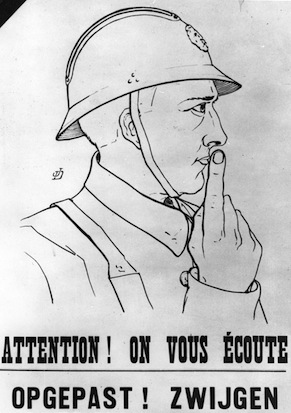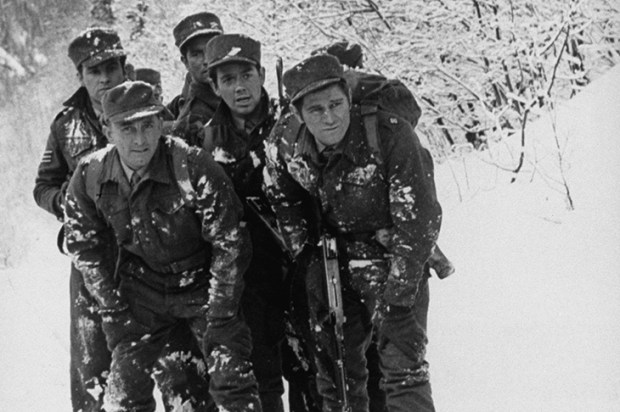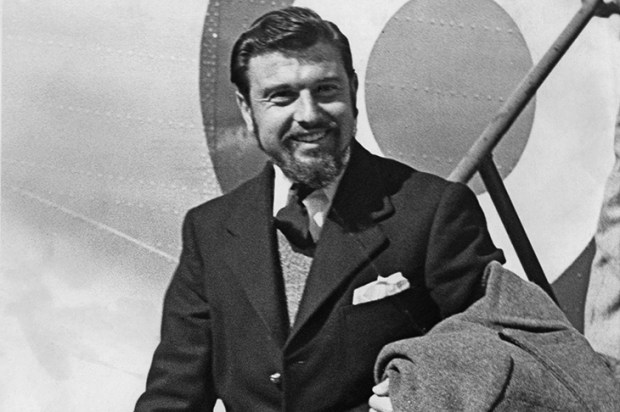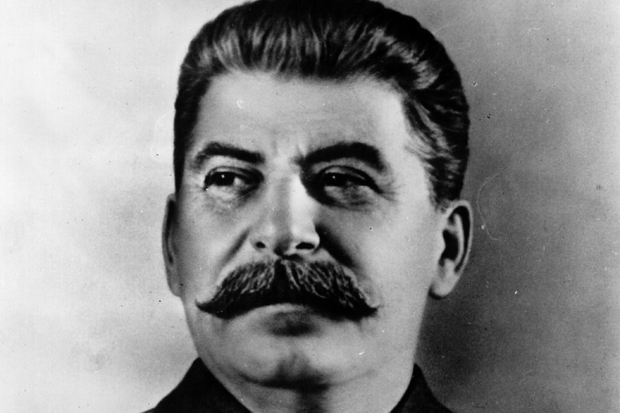Second world war deception operations are now widely known, particularly those which misled the Germans into thinking that the D-Day Normandy landings were merely a diversion. Great use was made of captured German agents in Britain who sent disinformation about invented army divisions and ships allocated to the supposedly ‘real’ landings still to come.
Much less well known, though of arguably equal consequence, was a similar deception operation in the Middle East, based on an MI6 agent known as CHEESE. He came to be regarded by the Germans as their most valuable source in the region, despite the fact that the disinformation he fed them helped prevent them capturing Cairo and the Suez Canal, lose them Tobruk, starve Rommel’s Afrika Korps of fuel, and kept vital German divisions in the south of France and the Balkans while the Allies established and expanded their Normandy foothold.
Sir Michael Howard, official historian of British strategic deception, described him as ‘the most successful channel at their [British] disposal’. The detail quoted in this book suggests that Nigel West’s judgment that CHEESE ‘accomplished more, over a longer period, than any other single Allied agent’ may not be an exaggeration. Of 26 imaginary Allied divisions supposedly identified by CHEESE, 21 were confirmed by the Germans and entered into their estimate of the Allied order of battle.
He was Renato Levi, an Italian Jew, cosmopolitan and multilingual, who spied for the French, Italians and Germans, or so they thought. In fact, he had been in contact with MI6 since 1939, when he reported an approach by the Germans. Encouraged to accept, he was eventually tasked by his German case officers to get to Cairo and report on Allied military intentions and capabilities. He got there via a British passport and the RAF, both courtesy of MI6, and began to build up what — in the eyes of the Germans — became a most successful and extensive network of sub-agents.
His principal motivation, the British reckoned, was not so much anti-German feeling — he rather liked them — as resentment at what they did to Jews. Among his case officers was Evan J. Simpson, well known then as the writer and Spectator contributor Evan John, who considered Levi
a natural liar, capable of inventing any story on the spur of the moment… very considerable intelligence… love of adventure… enjoys the work for its own sake… very fond of women… the work gives him opportunities of travel, and of handling large sums of money.
Another report, possibly also John’s, described him as ‘a man of personality rather than character’.
The extraordinary thing about the network of CHEESE sub-agents is that they were all notional, invented and orchestrated by Levi and his case officers. Their descriptions and backgrounds, quoted here, should qualify their inventors as spy novelists. My own favourite — and, I suspect, Levi’s — was his notional Greek girlfriend, codenamed MISANTHROPE, who obligingly picked up Allied officers in bars and who could make corporeal appearances when required in the person of Evangeline Palidou, ‘a fierce Cretan known as the Blonde Gun Moll, or BGM’. MISANTHROPE and CHEESE were together, unsuspected, until virtually the end of the war, when they were both taken off air as German control collapsed. By then MISANTHROPE had acquired an equally notional colleague, MARIE, to whom Levi also seems to have been partial, noting that she had ‘a regular lover of local extraction to whom she remained faithful in thought though not in deed’.
Not the least remarkable aspect of this operation is that for a significant period Levi himself was absent, having travelled back to Italy to prove his bona fides and found himself imprisoned. Throughout that time his case officers continued to report as him, adding to the network and cementing its credibility in German eyes.
Most who worked on the CHEESE case did so under the auspices of SIME — Security Intelligence Middle East — and a number are named here as having become prominent in MI6 and MI5 post-war. Virtually all the extensive file extracts quoted by West are from SIME papers. It would be useful to have more precise attribution than he gives here but nevertheless his book should serve as a timely reminder to historians that the SIME archive, though scattered and incomplete, deserves more attention. Meanwhile, as a taster, this book will more than do.
Got something to add? Join the discussion and comment below.
Get 10 issues for just $10
Subscribe to The Spectator Australia today for the next 10 magazine issues, plus full online access, for just $10.
Available from the Spectator Bookshop, £16 Tel: 08430 600033
You might disagree with half of it, but you’ll enjoy reading all of it. Try your first month for free, then just $2 a week for the remainder of your first year.














Comments
Don't miss out
Join the conversation with other Spectator Australia readers. Subscribe to leave a comment.
SUBSCRIBEAlready a subscriber? Log in